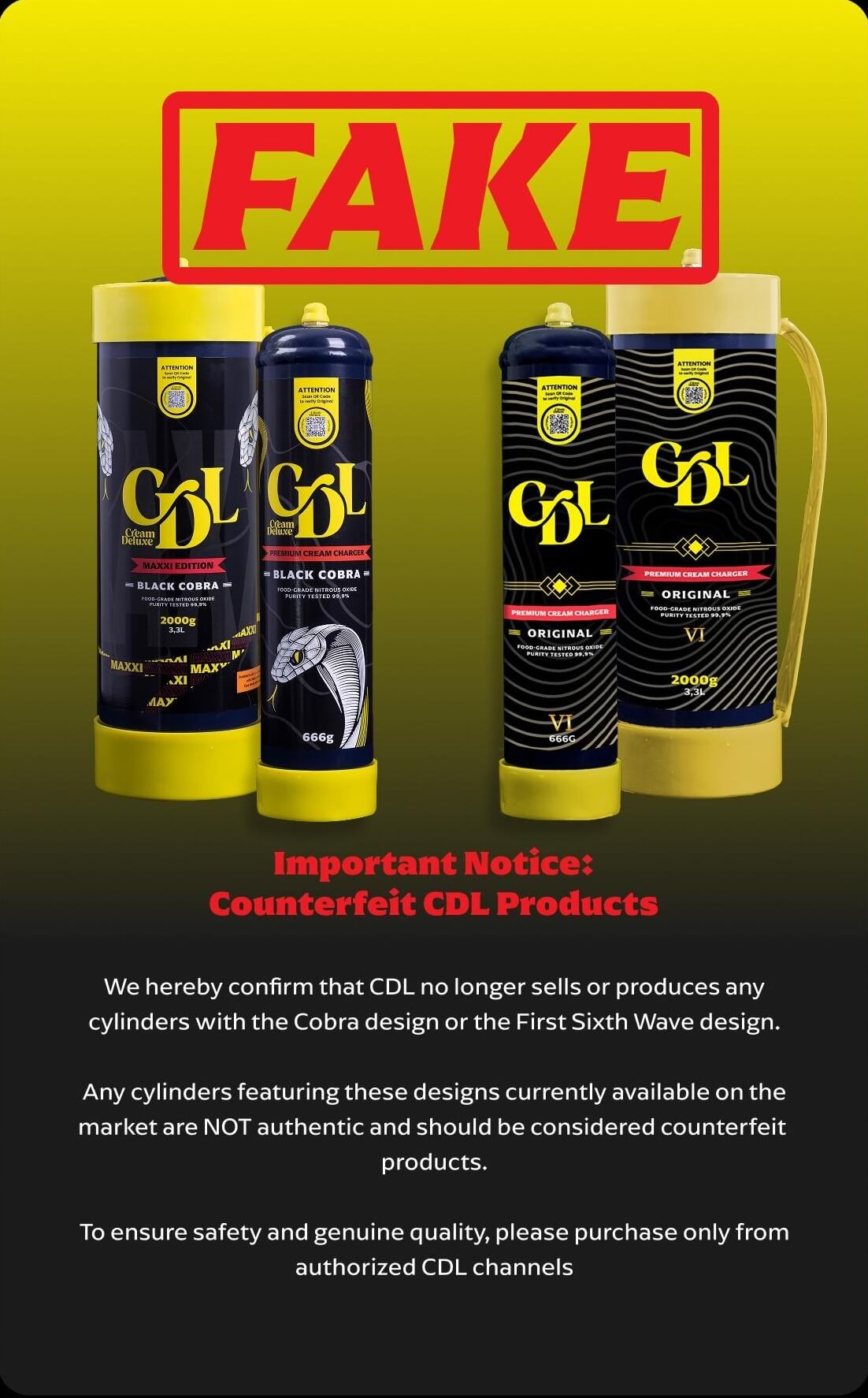angetrieben von PiQR.io
angetrieben von PiQR.io
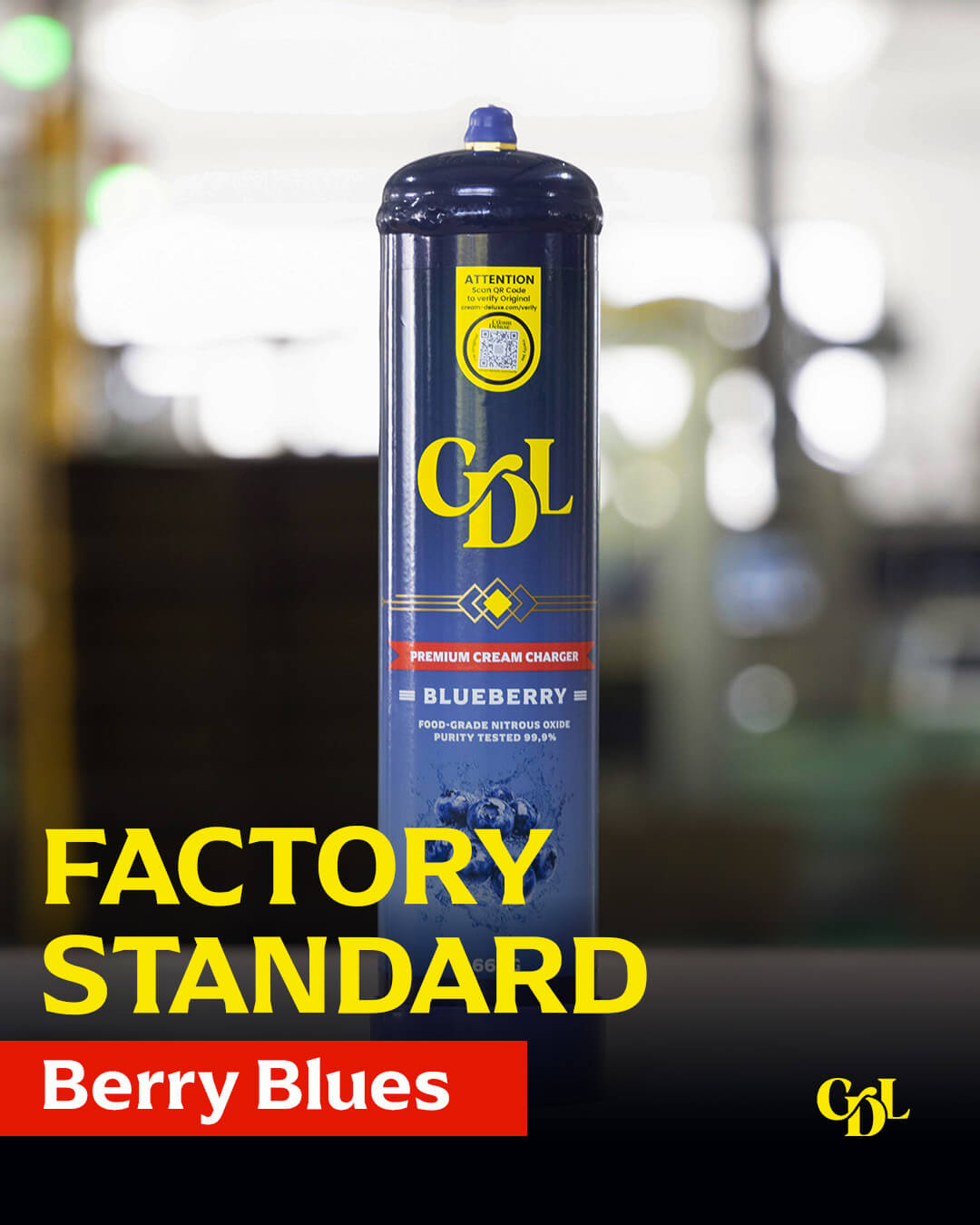
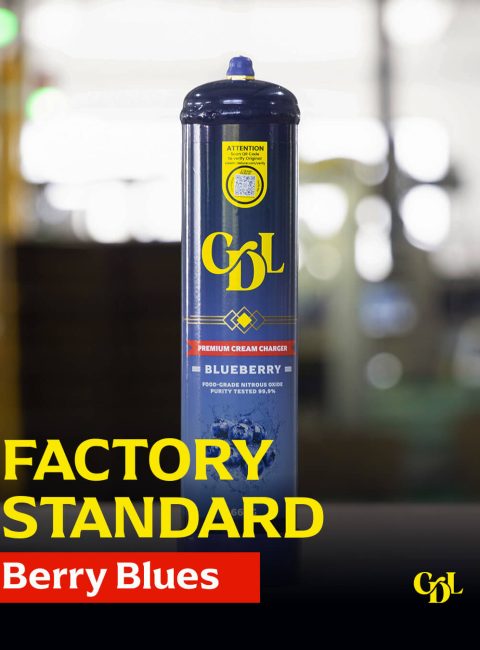
Perhaps you already know that when it comes to making desserts, using the wrong type of cream charger can turn your carefully prepared treats into a potential health risk. Impurities in low-quality chargers not only ruin the texture of whipped cream, but may also cause discomfort after consumption. Prolonged use of substandard cream chargers can even lead to serious health issues.So, do you know how to correctly choose a cream charger?
In fact, selecting a safe, food-grade nitrous oxide (N₂O) cream charger isn’t complicated. The key lies in recognizing certification credentials, verifying production standards, matching the product to your usage scenario, and purchasing through authorized channels. As long as you keep these core points in mind, you can avoid most of the common traps.
Let’s dive into the specific methods of selecting food-grade nitrous oxide cream chargers, so every dessert you make is both delicious and safe.
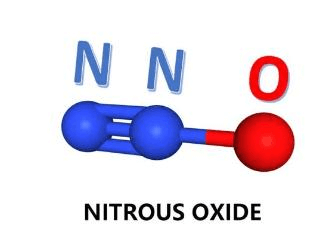
Food-grade N₂O must meet strict food safety standards, with a purity level of at least 99.9%. It must also meet stringent limits for harmful impurities such as heavy metals and sulfur compounds to ensure no toxic substances are released upon contact with food.
Industrial-grade N₂O, on the other hand, is primarily used in non-food applications like manufacturing. Its purity is typically around 95%, and it does nicht require limits on harmful impurities. Its standards are focused on industrial performance, not human health.
Food-grade N₂O goes through multiple stages of purification and filtration. From raw material selection to manufacturing, every step is carefully controlled to eliminate harmful substances.
Industrial-grade N₂O, however, is produced with a focus on cost-efficiency and volume. The process involves minimal purification, and lacks the safety measures necessary for food use.
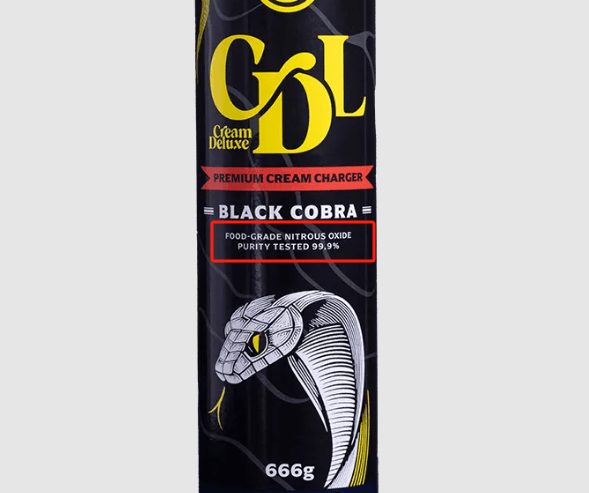
Food-grade N₂O will be clearly labeled with the term “Food Grade”, along with the manufacturer’s name and address, production license number, product standard code, production date, expiration date, and certification marks such as FDA oder CE.
Industrial-grade N₂O typically only displays the product name, purity, and manufacturer, without any food-related certification or usage information.
Medical-grade N₂O and food-grade N₂O are not interchangeable. Medical-grade is produced to meet physiological and anesthetic requirements, while food-grade focuses on safety when in contact with consumables. The two types have vastly different standards for purity and impurity control.
Click to learn more about the difference between medical-grade N₂O and food-grade N₂O.
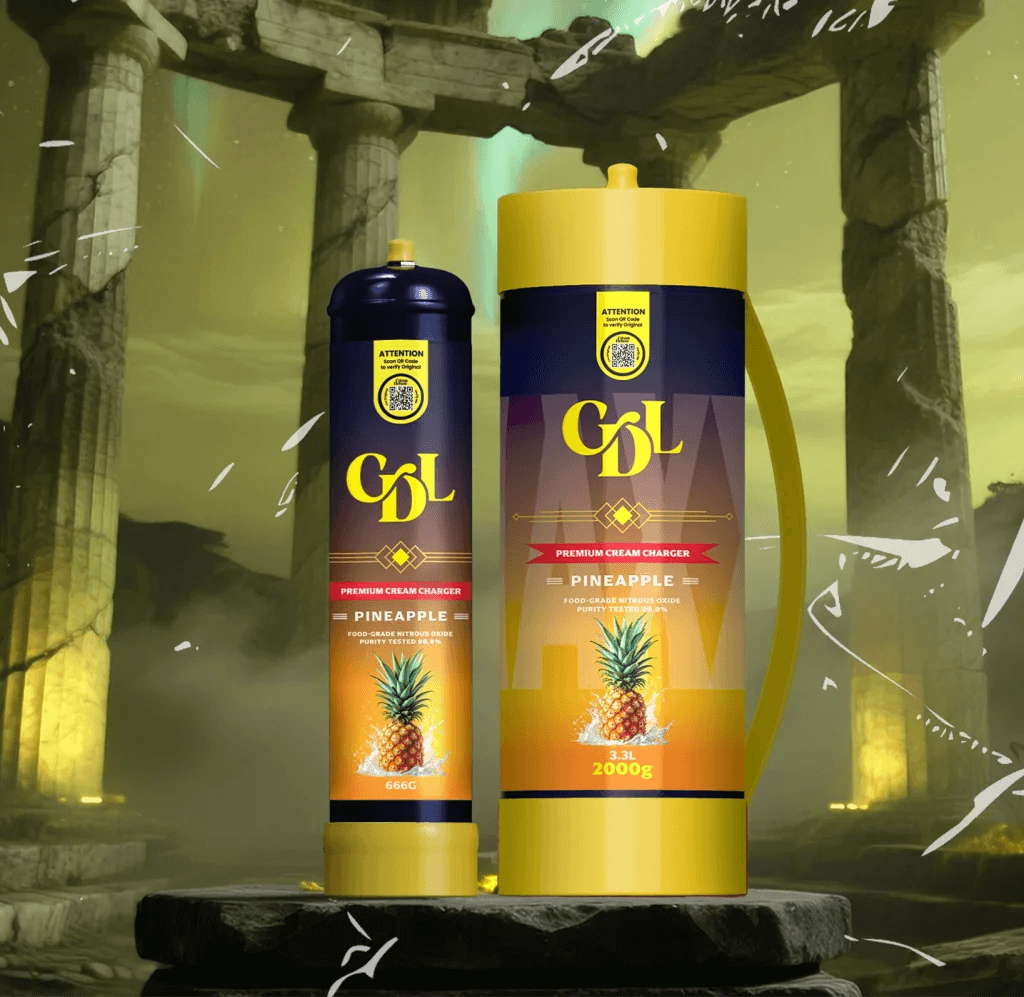
N₂O Purity Test: Confirm that the purity is ≥99.9%.
Impurity Test: Check for the presence and acceptable levels of heavy metals (lead, cadmium, mercury, arsenic), sulfides, benzene, and other toxic substances. These must meet food safety thresholds.
Checklist: Ensure the manufacturer has a fixed production site. This should be disclosed on the official website or product materials.
Transparency: Choose brands that disclose their production processes.
Experience: Prefer manufacturers with a proven track record in producing food-grade gases, not outsourced or third-party manufacturers.
| Certification | Purpose |
| FDA | Indicates compliance with U.S. Food and Drug Administration standards. Suitable for the North American market. |
| CE | Shows compliance with EU health, safety, and environmental protection standards. |
| ISO 22000 | Demonstrates that the manufacturer has an established food safety management system to control risks in the food chain. |
Take Cream Deluxe for example — a compliant brand with certifications including DOT, TUV, and more. It also offers anti-counterfeit measures. You can verify authenticity through their official website by entering the serial number on the bottle, or contact customer service for confirmation.
Click to view Cream Deluxe product verification process.
Home Use: Opt for small capacity bottles like 0.95L — easy to handle, perfect for occasional dessert making.
Commercial Use: For bakeries or coffee shops, go with larger bottles like 3.3L. These reduce the frequency of replacements and improve operational efficiency.
Dispenser connections vary (universal, threaded, etc.). Refer to your device manual to check compatibility, or consult the seller with your dispenser brand/model to get tailored advice.
Steel Bottles: High pressure resistance, ideal for unstable environments, but heavier.
Aluminum Bottles: Lightweight, corrosion-resistant — best for indoor, dry, well-ventilated storage.
Choose aluminum if humidity is high; choose steel if frequent transport or tough conditions are expected.
Recommended: Official brand websites, major e-commerce platforms with verified stores, or authorized food additive distributors.
Risky: Cheap bulk listings, often containing industrial-grade N₂O, or second-hand bottles that pose leakage and contamination risks.
Due to lower costs, industrial-grade N₂O is about 1/3 the price of food-grade. If a product is priced more than 60% lower than market average, it’s a red flag — it’s likely counterfeit or adulterated with industrial-grade gas.
Ensure packaging is intact and leak-free. Confirm the label includes “Food Grade”, manufacturer details, production license, product code, date of manufacture, expiration date, and certification logos. Make sure these match the test report.
Do a small trial: dispense a little cream. High-purity N₂O should produce smooth, silky cream. If you notice odd smells or rough texture, the gas purity may be too low.
Save your receipt, test report, and chat records with the seller. If you find the product substandard, these can be used for refunds, returns, or complaints to regulatory authorities.
You must use FDA/CE certified food-grade N₂O chargers. Using industrial-grade N₂O for food production is illegal and violates food safety laws which prohibit the use of non-food chemicals in food manufacturing.
Lagerung: Keep away from direct sunlight; store below 40℃; keep away from flames and incompatible chemicals (e.g., acids, alkalis).
Usage: Never overfill your dispenser (max 80% of its rated volume); never use the charger upside down to avoid contaminating the cream.
Cream chargers are recyclable metals. Never toss them in regular trash. Commercial users must dispose of them via licensed hazardous waste handlers.
The Four Golden Rules for Choosing Food-Grade N₂O Cream Chargers:
Certifications, Kompatibilität, Channels, and Price Awareness.
Only by choosing products that meet strict safety standards can you enjoy desserts that are both delicious and safe. Why not try Cream Deluxe? With proven quality and safety, it can add that extra peace of mind to your dessert-making journey.
1. What should I do if I get frostbite from accidental N₂O leakage?
Immediately rinse the affected area with cold water (never use hot water). Gently dry with a clean towel and seek medical attention.
2. How can I quickly detect a gas leak? What should I do if one occurs?
Apply soapy water to the valve and connection points. If bubbles appear, there’s a leak. Stop use immediately, move the bottle to a well-ventilated area away from flames or people, and contact the seller or a professional. Never attempt to disassemble or repair it yourself.
3. Can food-grade N₂O be mixed with other gases like CO₂ in the charger?
Absolutely not. Different gases have different properties and uses. Mixing them could affect cream texture, damage the dispenser, or even cause safety hazards.
| Keks | Dauer | Beschreibung |
|---|---|---|
| cookielawinfo-checkbox-analytics | 11 Monate | Dieses Cookie wird vom GDPR Cookie Consent Plugin gesetzt. Das Cookie wird verwendet, um die Zustimmung des Nutzers für die Cookies in der Kategorie "Analytics" zu speichern. |
| cookielawinfo-checkbox-functional | 11 Monate | Das Cookie wird durch die GDPR-Cookie-Zustimmung gesetzt, um die Zustimmung des Benutzers für die Cookies in der Kategorie "Funktional" aufzuzeichnen. |
| cookielawinfo-checkbox-necessary | 11 Monate | Dieses Cookie wird vom GDPR Cookie Consent Plugin gesetzt. Das Cookie wird verwendet, um die Zustimmung des Nutzers für die Cookies der Kategorie "Notwendig" zu speichern. |
| cookielawinfo-checkbox-others | 11 Monate | Dieses Cookie wird vom GDPR Cookie Consent Plugin gesetzt. Das Cookie wird verwendet, um die Zustimmung des Nutzers für die Cookies in der Kategorie "Andere" zu speichern. |
| cookielawinfo-checkbox-others | 11 Monate | Dieses Cookie wird vom GDPR Cookie Consent Plugin gesetzt. Das Cookie wird verwendet, um die Zustimmung des Nutzers für die Cookies in der Kategorie "Andere" zu speichern. |
| cookielawinfo-checkbox-performance | 11 Monate | Dieses Cookie wird vom GDPR Cookie Consent Plugin gesetzt. Das Cookie wird verwendet, um die Zustimmung des Nutzers für die Cookies in der Kategorie "Leistung" zu speichern. |
| viewed_cookie_policy | 11 Monate | Das Cookie wird vom GDPR Cookie Consent Plugin gesetzt und wird verwendet, um zu speichern, ob der Nutzer der Verwendung von Cookies zugestimmt hat oder nicht. Es speichert keine persönlichen Daten. |
